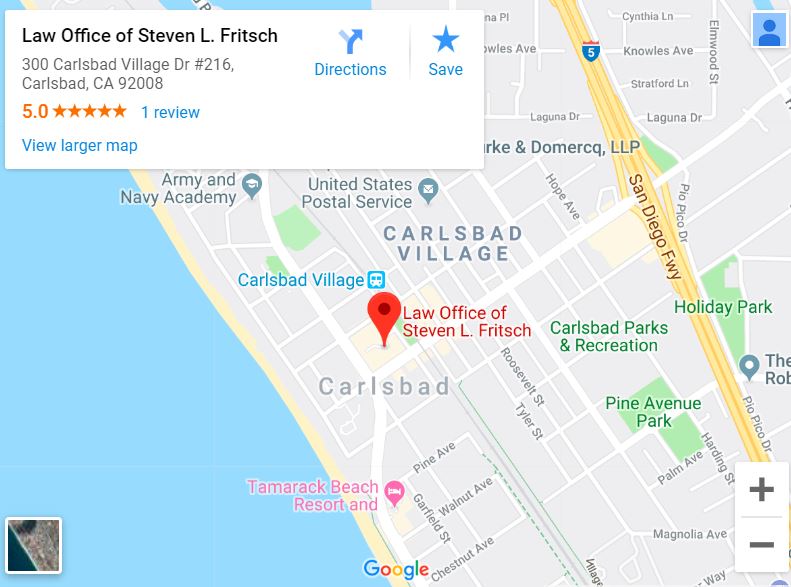
Legal Separation is Not Always a Path to Divorce
When people hear that a couple has legally separated, many assume that the ultimate goal is divorce, but this may or may not be the case. No matter how frustrated one person is with his or her spouse, it isn’t a good idea to leave the home unofficially. If there are children, this action could be seen as abandonment, even if it is the last thing that the person wants to do. If getting some space can’t wait, it is better to head to a local hotel for a few days and retain the right to return to the home. If those few days aren’t enough to cool things off, it may be time to proceed with a legal separation. Here are some reasons why legal separation is sometimes a long-term solution rather than a step toward divorce.
Reasons for Legal Separation
The couple may think that there is a chance of one day reconciling, and the spouses aren’t ready to give up on the marriage. They may want some time apart to gain perspective and heal from whatever circumstances caused them to hurt one another before giving their marriage another try.
One or both people in the marriage are against the idea of divorcing for religious or other reasons based on their personal value system, but they do not want to share their day-to-day life. Getting remarried may be something they either don’t believe in or can’t imagine doing, and they don’t see the necessity of a divorce.
Financial Benefits of Legal Separation
Staying married may carry various financial benefits. Holding onto health and other insurance benefits is one reason to forego a divorce. One dual-coverage policy is often less expensive than two single-coverage policies.The couple might also fare better from a tax perspective by continuing to file as a married couple rather than as single people. Those who have been married just under 10 years can also benefit financially if they stay married at least until that 10-year mark has passed. At that point, the spouse with lower earnings becomes eligible to one day collect Social Security based on the higher-earning spouse’s earnings rather than his or her own.
Residence Issues
In order to file for divorce in California, certain residential requirements must be met. If a couple is new to the area, it might not meet these requirements. Rather than staying in an uncomfortable situation while the clock ticks, the spouses can get a legal separation in order to gain the right to live apart while they wait for enough time to pass to start divorce proceedings, if they choose.
A person who is not a U.S. citizen but is married to one is sometimes able to live in the country based on this marital status. By getting a divorce, the noncitizen may risk getting deported. A legal separation will allow the noncitizen to stay in the country without being forced to live with his or her spouse.
It’s a Faster Decision
The court decisions made in a legal separation are made almost immediately, while the details of a divorce can be drawn out for months or even years. The decisions made may not be ideal for either person, but it does provide a vantage point so that each person can move forward.
When a couple is legally separated, neither spouse is responsible for the individual financial decisions of the other. A legal separation can save a person financially if he or she is married to someone with a spending or gambling problem. If the separation takes place without the court, the other spouse can still be held responsible.
Date of Separation vs. Legal Separation
Many people that come into my office are confused about the difference between the date of separation and legal separation. In fact, many believe they are the same thing or can be used interchangeably. The fact of the matter is that they are completely different. Hopefully, this article will straighten out any confusion.
Legal Separation
Legal separation is a type of proceeding for parties that do not want to be divorced but want to resolve all their property, custody and support issues. All the things that happen in a divorce such as the division of assets and debts, determination of custody and visitation and determination of child support and spousal support occurs. The difference is that in a legal separation there is no residency requirement for legal separation and the marital status remains and is not terminated. In other words, if a legal separation is granted, the parties are still married. That means, parties that obtain a judgment for legal separation cannot marry someone else. To dissolve the marriage and return to the status of single, they must later file a divorce/dissolution. This is easy to do but the six (6) month waiting requirement must still be met even if it took over six months to obtain a legal separation judgment or years have gone by since they obtained a judgment for legal separation. Why would people want a legal separation? Generally, legal separations are obtained because either they do not want their marriage terminated for religious reasons or so a spouse can maintain health insurance benefits.
Date of Separation
Date of separation is the date that the marital relationship ceased to exist. There are factors that go into determining the date of separation but that is beyond the scope of this article. Here, it is important to know that the significance of the date of separation is that generally, assets obtained, debts incurred and income earned after the date of separation are separate property. In other words, if one spouse incurs credit card debt on a joint account after the date of separation, that debt goes to the party that charged on the credit card. For this reason, the date of separation can be a very important issue and can be an issue that results in a trial. Sometimes the date of separation can be a significant amount of money that is either gained or lost by a party. Furthermore, the date of separation is needed in both a divorce and a legal separation since assets and debts are divided in both type of proceedings.
In sum, the date of separation and legal separation are completely different. A legal separation is a proceeding for couples that want to divide their assets and debts and determine custody and support issues but not terminate their marriage. The date of separation is rather a date used in both divorce and legal separation proceedings to determine when assets, debts and income are separate property.
If you are considering a legal separation from your spouse, contact our attorneys today for a free consultation and to help guide you through the process.
